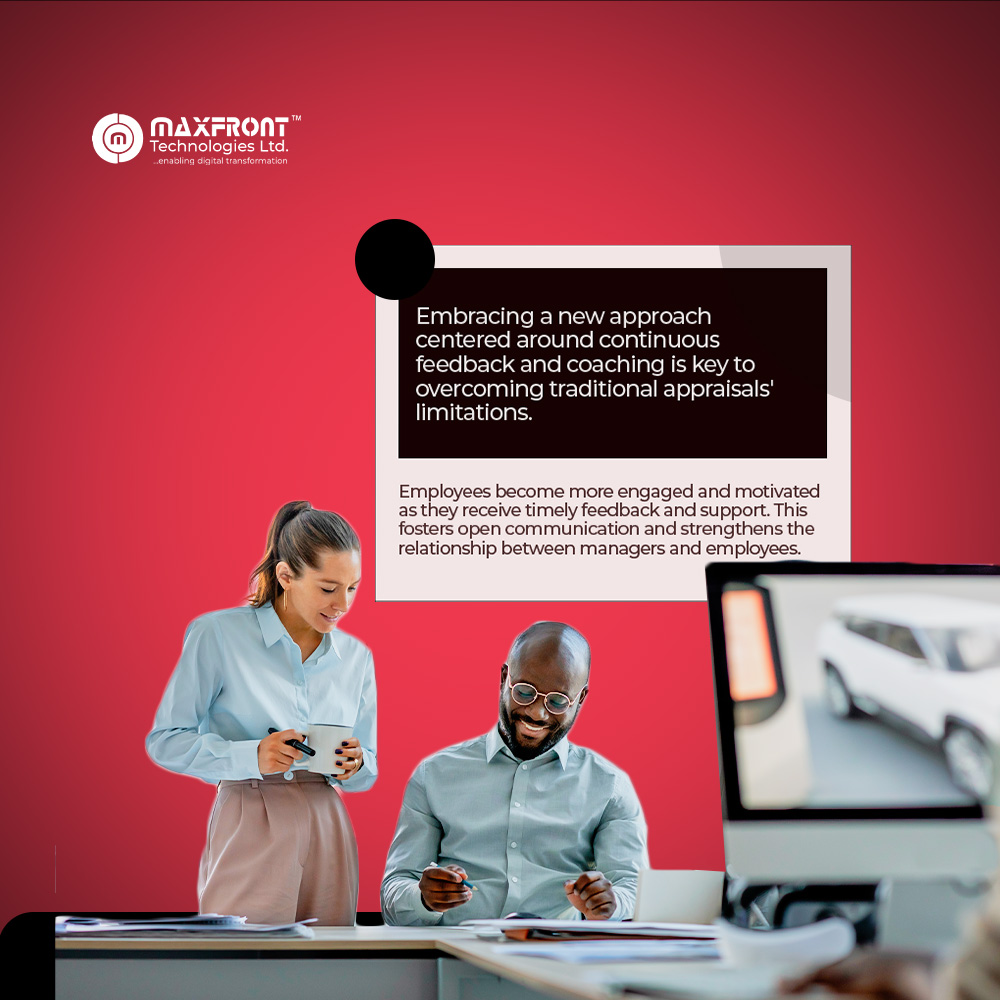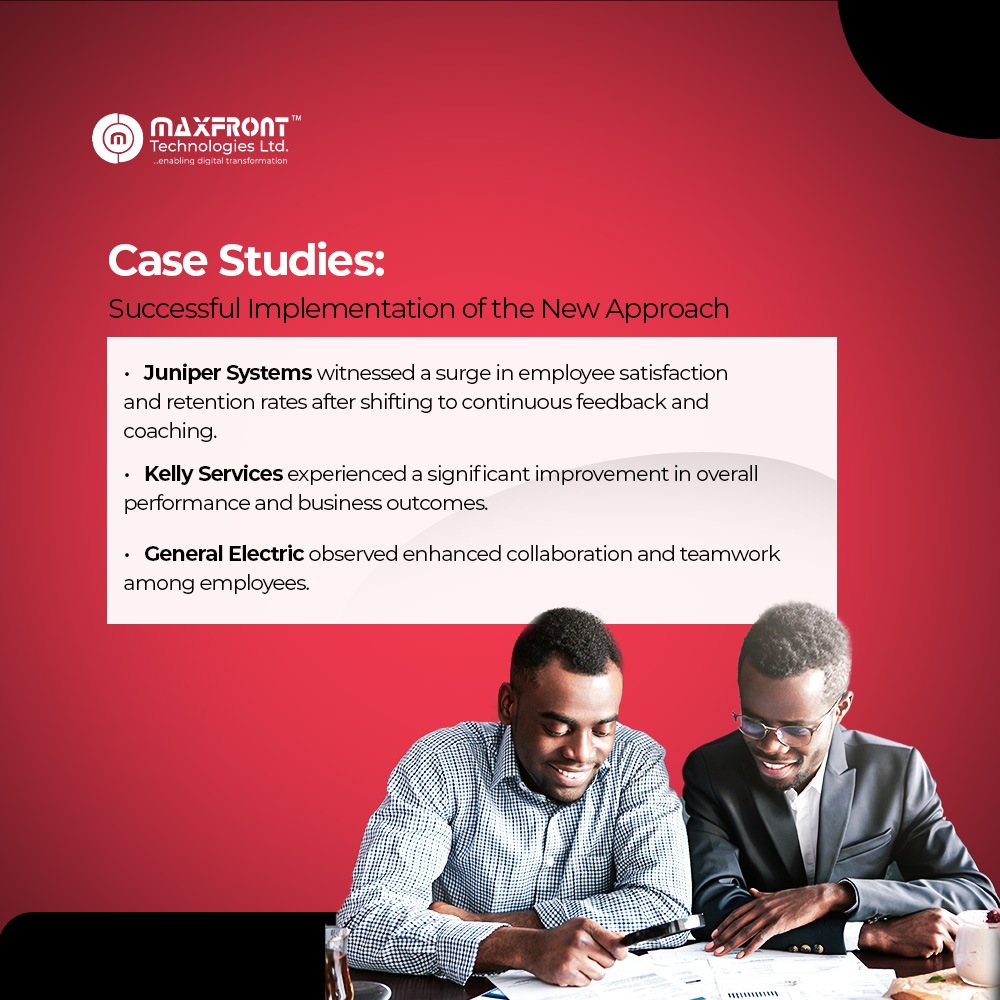Introduction

In today’s rapidly evolving business landscape, companies continuously seek innovative ways to optimize their workforce and drive productivity. For decades, performance appraisals have been a fundamental tool for assessing employee performance and determining their value to the organization. Nevertheless, many experts and business leaders are now questioning the effectiveness of traditional performance appraisals. In this blog post, we will delve into the reasons behind the inadequacy of these conventional methods and explore alternative approaches that hold the promise of fostering more meaningful employee growth and development. While performance appraisals have long been considered indispensable for nurturing talent within organizations, they also come with inherent challenges and limitations. Adopting a more dynamic and practical approach that addresses these concerns and fosters a culture of continuous improvement is essential to unlock the true potential of performance evaluations. Throughout this blog post, we will delve into the significance of performance appraisals, shed light on the shortcomings of conventional methods, and present a fresh perspective to empower employee development.
Traditional Performance Appraisal Methods
In the conventional setup, performance appraisals occur annually or bi-annually, offering limited employee feedback and recognition opportunities. Moreover, they tend to dwell heavily on past performance, often pinpointing faults rather than focusing on future growth prospects. Additionally, the subjective nature of appraisal ratings can lead to biases and unfair evaluations.
- Inherent Biases
One of the major drawbacks of performance appraisals is the presence of inherent biases. Human evaluators are susceptible to unconscious biases that can influence their judgment of an employee’s performance. These biases may be based on factors like gender, race, appearance, or personal rapport, leading to inaccurate and unfair evaluations. As a result, employees who deserve recognition and advancement might be overlooked, while those who are less deserving might be rewarded unjustly. This undermines the trust and morale of the entire workforce.
- Limited Scope and Frequency
Traditional performance appraisals typically occur annually or semi-annually, which means employees receive feedback and recognition infrequently. This approach fails to address the fast-paced nature of work and the need for timely guidance and support. Employees crave ongoing feedback to help them course-correct, improve their skills, and stay motivated. The lack of continuous evaluation can lead to stagnant growth and hinder individual and organizational progress.
- Focus on Past Performance
Another flaw of performance appraisals is their retrospective nature, primarily focusing on past performance rather than future potential. While it’s essential to acknowledge an employee’s achievements and areas of improvement, dwelling solely on past performance can hinder innovation and discourage risk-taking. Employees might feel penalized for mistakes made in the past, leading to a fear of failure that stifles creativity and initiative.
- Demotivation and Disengagement
Surprisingly, performance appraisals can have a detrimental impact on employee motivation and engagement. The rigid nature of the appraisal process can make employees feel like they are mere cogs in a machine rather than valued contributors to the company’s success. Focusing on competition and rating systems can foster a toxic work culture, pitting employees against each other instead of encouraging teamwork and collaboration.
Rethinking Performance Appraisals: A New Approach – Continuous Feedback and Development
A paradigm shift is necessary. Embracing a new approach centered around continuous feedback and coaching is key to overcoming traditional appraisals’ limitations. This method involves setting clear expectations and goals while regularly conducting check-ins and progress reviews. To overcome the limitations of traditional performance appraisals, forward-thinking companies are embracing a more modern approach to employee growth and development. This alternative approach revolves around continuous feedback and development conversations. Instead of annual assessments, managers and employees engage in regular one-on-one discussions to exchange feedback, set goals, and identify areas for improvement.
Continuous feedback fosters open communication, builds trust, and empowers employees to take ownership of their development. Managers act as coaches, providing guidance and support to help employees thrive. Moreover, this approach allows organizations to address issues promptly, leading to a more agile and responsive workforce.
Benefits of the New Approach
Companies can reap numerous benefits by adopting the new approach to performance appraisals. Firstly, employees become more engaged and motivated as they receive timely feedback and support. This fosters open communication and strengthens the relationship between managers and employees. Consequently, a culture of trust and collaboration emerges, leading to improved overall performance and productivity.
Implementing the New Approach
Managers should undergo training on effective feedback and coaching techniques to successfully implement the new performance appraisal model. Leveraging technology for real-time feedback and progress tracking can enhance the process further. Moreover, nurturing a culture of continuous learning and development within the organization is pivotal to the success of the new approach.

Case Studies: Successful Implementation of the New Approach
Several companies have already embraced the new performance appraisal approach with remarkable results:
- Juniper Systems witnessed a surge in employee satisfaction and retention rates after shifting to continuous feedback and coaching. Employees felt more valued and appreciated for their contributions, resulting in increased loyalty to the company.
- Kelly Services experienced a significant improvement in overall performance and business outcomes. Focusing on setting clear goals and fostering regular progress reviews motivated employees to strive for excellence, positively impacting the company’s bottom line.
- General Electric observed enhanced collaboration and teamwork among employees. The continuous feedback system encouraged individuals to work collectively, share ideas, and support each other’s growth, leading to a more harmonious and productive work environment.
Conclusion
Performance appraisals have played a significant role in the past, but the dynamic nature of today’s workplaces calls for a fresh perspective on employee evaluation and growth. Rethinking performance appraisals to prioritize continuous feedback and development can foster a positive work environment, enhance employee motivation, and drive organizational success. Embracing this new approach empowers companies to unleash the full potential of their workforce, enabling them to stay ahead in an ever-evolving business landscape.
While performance appraisals are pivotal for employee growth and development, traditional methods often fall short of meeting the evolving needs of modern workplaces. Organizations can unlock the full potential of their workforce by adopting a new approach that emphasizes continuous feedback, coaching, and goal-setting. This transformation leads to increased employee engagement, improved communication, and heightened performance levels, ultimately propelling the company’s success in today’s competitive business landscape.
Ready to revolutionize your company’s approach to performance evaluations and unlock the true potential of your workforce? Embrace continuous feedback, coaching, and goal-setting to create a positive work environment and drive organizational success. Let’s reimagine performance appraisals together and empower your employees to thrive in the ever-evolving business landscape!